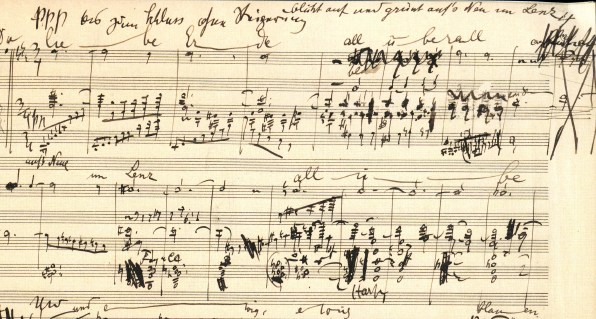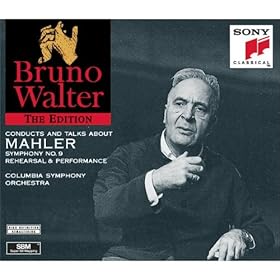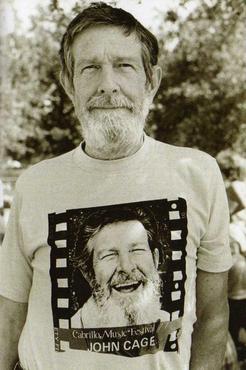Threats of disruption by pro-Pal activists proved unfounded. The concert of Liszt and Mahler went ahead without incident at the Teatro Degli Arcimboldi, the orchestra buoyed by tubs of Ben & Jerry’s that Zubin had thoughtfully provided on the flight.
Now that’s a thoughtful maestro.
Here’s the IPO blog.

There were no tickets to be had for the John Cage concert at London’s Queen Elizabeth Hall, and the queue for returns snaked down to the river. The QEH holds 1100 seats. That’s a lot of Cage fans.
The concert featured the chart-topping 4’33”, together with the String Quartet In Four Parts, Radio Music, Music For Eight, and the Concert For Piano And Orchestra, performed simultaneously with Fontana Mix.
There is an ongoing exhibition of Cage sketches and drawings at the neighbouring Hayward Gallery. Linked story here.

The account I published yesterday of how young talent is deceived and abused at classical music competitions is by no means exceptional. An entire industry exists to exploit young dreams and nothing is done to police it.
There exists a European Union of Music Competitions for Youth (EMCY), regulated under German law, and a World Federation of International Music Competitions (WFIMC), based in Geneva. Both receive public funding and provide sedate employment for well-pensioned time servers.
It’s about time the EMCY and WFIMC were made to recompense competitors who have been mistreated by their member organisations – whether by being enticed to a contest under false promises, or by being robbed of a prize by a corrupt jury. They should, at the very least, repay travel and accommodation expenses laid out by impecunious young musicians who have been enticed into a time-wasting trap.
Music competitions need to be brought within the remit of international law, with an industry code that can be called to account.

It’s the lawyer she’s been going out with, no surprise there. His name’s Tim Jessel.
They were set up on a blind date by author Ann Patchett. Guess she got a slice of cake.
Here‘s the lowdown. The bride, by the way, wore green.

Four members of the London Philharmonic Orchestra who wrote a letter to the Independent calling for the Israel Philharmonic to be banned from the BBC Proms have been suspended by their board for up to nine months, the JC reports.
The four signatories are cellist Sue Sutherley and violinists Tom Eisner, Nancy Elan and Sarah Streatfeild. Earlier, a player was reported to have been suspended indefinitely for a verbal assault on members of the IPO in an pre-Proms events.
This is the most severe public penalty inflicted on London orchestral musicians in memory. It is a mark of the passions generated among supporters of the orchestra, who resented players using its name for propaganda purposes.
The LPO is owned by its players and governed by a mixed board of players, executives and financial supporters.
(the picture is taken from Iranian TV)
The New England Conservatory is putting on a performance of Mahler’s first symphony in the original version. That’s the five-part epic with the Blumine movement, which the composer dropped after the third performance, acknowledging that it unbalanced his creation. He never talked of conducting it again in the original version. It was a mistake. He learned from it.
The NEC has not. They are puffing up their forthcoming performance of the original version as ‘an American premiere’, no less, and ‘the first time it has been heard since its 1889 premiere’.
I am not sure that is entirely true. Seiji Ozawa recorded the five-movement version with the Boston Symphony Orchestra for DG a few years back and there have been other reconstructionists who tried it out, here and there. The NEC claims that ‘the performance of the First will include not only the Blumine movement that Mahler ultimately discarded but also significant segments of music, notably in the finale, that never made it into any subsequent versions. ‘ Hmmm… Why is that? Because Mahler cut them out. They were superfluous.
It looks like the NEC and its director of orchestras, Hugh Wolff, are trying to prove they know better than Mahler. If this were an experiment for scholarly purposes, so be it. But to make a PR event of it – to claim some kind of first – that’s just perverse.

The link’s here, if you want to go. Apparently, it’s the start of a cycle.
He was 89.

Hamilton was the cornerstone of the movement, a mentor of David Hockney and Peter Blake.
His 1956 collage Just what is it that makes today’s homes so different, so appealing? was the first Pop Art work from Britain to win international recognition. It hangs now in Tübingen, Germany.

He is seen here at the 197 Venice Biennale (photo: British Council).
The hottest soprano on record is going to be 40 on Sunday and is contemplating her future.
Anna was serious when she talked earlier this summer about opening a restaurant in Vienna. Friends tell me she’s bored with opera hype and wants a challenge. She’s happier talking menus than roles, barely able to suppress a yawn while playing the online agony aunt – as required by her record company. I suspect she could do with a break – six months of media silence to celebrate her big birthday.
And maybe a new white fur for the winter.

It’s on November 20th, the centenary of the posthumous world premiere of Das Lied von der Erde.

After that, it’s June 26, 2012, a hundred years after the first performance of the ninth symphony.

Why mention them? Because anniversaries are integral to Mahler. Here’s part of the introduction to the new paperback editions of Why Mahler?
More than any other composer, Gustav Mahler owes his posterity to anniversaries. It was the centenary of his birth in 1960 that caused BBC producers in London and Leonard Bernstein in New York to put on groundbreaking cycles of his symphonies, restoring his music to concert circulation. Sixty years after his death, in 1971, Luchino Visconti’s film Death in Venice introduced Mahler’s music to a mass audience. The 75th anniversary, 1986, prompted Claudio Abbado to form a pan-European orchestra, the Gustav Mahler Youth Orchestra, which in turn yielded the Mahler Chamber Orchestra, applying the composer’s name as a hallmark of excellence. Anniversary by anniversary, stage by stage, Mahler’s fame extended to a point where, in December 2010, the Philharmonie in Berlin opened an exhibition under the evangelical title, His Time Is Come. In half a century, Mahler had gone from near-zero to folk hero.
The 150thanniversary of his birth in 2010, running into the centenary of his death in 2011, enabled slow-moving orchestras to plan a surge of symphonic cycles for this second coming – in Sydney, Seoul, Beijing, Rome, Leipzig, Stockholm, Cracow, Paris, Manchester, Birmingham, Amsterdam, Prague, Düsseldorf and Munich, not to mention triennial cycles in Pittsburgh, Boston and more. On London’s South Bank, there were 27 Mahler concerts over the two years, and as many again across the city at the Barbican, Royal Albert Hall and elsewhere. Listeners were spoilt for choice – two Resurrections in the UK on the same Saturday night; Rattle in the third or Oramo in the tenth on a grey Wednesday in February.
….
It is encouraging that the end of the Mahler centennial will mark the start of a Mahler Project in Los Angeles and Caracas by the most exciting interpreter of a new generation, Gustavo Dudamel.

Why Mahler? UK paperback edition
The pro-Pal coalition in Italy is threatening to repeat last week’s disruptions at the BBC Proms when the Israel Philharmonic Orchestra plays in Milan tonight and Turin tomorrow. Specifically, they intend ‘to challenge the Israeli presence and condemn the moral insensitivity of cultural institutions in Milan and Turin, as happened in London during the concert at the Royal Albert Hall on September 1.’
This could mean that they have infiltrated dusrupters into the concert halls.
The plan, according to their agit-prop website, which shows an armed Israeli soldier apparently threatening a small child, is ‘to make a garrison’ at the concerts. Those who believe that musicians should be allowed to perform free of political distraction may wish to support the concert as best they can.

My colleague Guy Dammann has just posted this intriguing link to a site where a composer – any living composer – can share a page for a year with the late lamented mycologist and master of silence. It’s called the Random Composer Award. Go on, you have to try for it… I might even publish the winner on slipped disc.
Here’s the opening paragraph: The John Cage Memorial Random Composer Award was inaugurated in 2011 in commemoration of John Cage’s 99th birthday. The JCMRCA will be awarded to a single composer each year, whose biography and music will appear on this web page for the year.

I’ve received a report from a disappointed contestant at the Bucharest Conducting Competition – not the usual loser’s whinge, but a detailed account of how bright, young talent is all too often abused at these closeted, corruptible events. The shining example of this year’s transparent Tchaikovsky Competition restored credibility to the sector, but there are still a lot of shabby events like the one below. Young conductors, beware.

The author, by the way, is a gifted and enterprising young maestro. I would welcome any comments the organising festival has to make in response.
The mastercourse and competition took place in Bucharest. The website is www.bucharestfestival.com. It was organized by a lady called Raluca Chifane  and the course was given by Wolfgang Doerner, who was also the president of the competition’s jury.
and the course was given by Wolfgang Doerner, who was also the president of the competition’s jury.

Judging from the website, both the master course and competition looked ok. A master course of one week with a chamber orchestra and with the radio orchestra.
It claimed to have the support of the Romanian president and the teacher seemed ok (though I couldn’t find anything of him on youtube). Prior to the course I received a schedule that indicated conducting lessons almost daily. Arriving there I realized that for one week we were about 60 (!!) conductors for both the master course and competition. On the first day we were told that each one of us would get 30 minutes with the chamber orchestra and 30 minutes with the radio orchestra. This for €850 !!
Plus we had to pay our own travel costs and lodging. So, I went to Bucharest for 9 days to conduct a total of 60 minutes. When the lessons started, I came to the conclusion that the teacher was not particularly capable. Perhaps others may disagree but all the opinions from fellow colleagues that I could get were the same: “The teacher does not say much, when he says something it is not very clear neither very useful, but most of the time he simply does not say anything”. There was even one conductor who told him “maestro, I want to know your opinion” but the maestro did not give an opinion! Frustrated, the student decided better to leave the podium though his time was not over!
After a few rounds of the competition I discovered that in the third round there were only a couple of conductors who were not students of the Jury’s president!! And the Jury’s president was of course, the same maestro of the master class. Having drinks with fellow conductors more details came out. Everybody was allowed to enter the master class (upon €850 payment of course) but only 36 conductors were supposed to be allowed into the competition (upon a €150 fee). At the end, there were all 60 conductors allowed in the competition, why??: Turns out that some of our colleagues who wanted to join exclusively the competition (at €150) were told by the Director of the festival: “Your chances of getting allowed into the competition are much bigger if you also join (and pay) for the master course”… Unbelievable.
By then it was Wednesday. I was then informed that my 30 minutes with the radio orchestra would be until next Monday… 4 long days in Bucharest, 35 degrees celsius. Trying to make the best of it, I prepare for my 30 minutes and I show up then, only to find an overworked and exhausted orchestra that has been playing 7 full days with 59 different conductors. Of course, at that point not even Gergiev’s conducting would have made them react.
There I am, ready to start conducting Brahms first Hungarian dance. After a few bars communication was not really happening so I decide to stop and say the following: “You know this music very well and I only have 30 minutes so let’s try to make music, no talking. But first I would like to have a couple of bars of accompaniment, no melody so we can get the rhythm right” Immediately the maestro jumped to me to say “ You have to understand the psychology of the orchestra! Right now they are very tired and working out a separate section is not a good idea” (!!!???) I thought: “So I pay €850 for 60 minutes of something you could not call a lesson, and on top of that, I am not allowed to work out things because the orchestra is very tired!? So I actually paid €850 to play stupid standing on a podium!!”
The cherry on the cake… The first prize of the competition was supposed to be to conduct the final concert of the festival. The second prize €1500 and the third €1000. It was a bit confusing to learn later that the final concert was going to be the finals of the competition, with all four finalists. I guessed the first price would then be a later engagement… I asked around in the radio house to find out that there was no such engagement, they were not planning to invite any of the finalists… Mhhh???
What happened in the finals?? There was no first prize awarded. Instead of giving one second prize and one third price they decided to split the second prize in three finalists. These poor guys who endured a rather humiliating and dishonest situation, ended up “winning” €500 each. Smart solution that saves the “organization” the €1000 that they would have to give as a third prize. So, as you can imagine, it was the conducting master course from hell.
I was extremely angry and I think other young conductors should be warned. It is terrible to abuse young people for which €1000 plus travel and lodging costs represent a big financial effort. I really cannot understand how can someone be so immoral to take advantage of a young musician’s enthusiasm and will to learn. It made me really sad. Talking to many of my fellow colleagues (some of them coming from USA, Japan, Korea) I realized I was not by far the only one sad.















 and the course was given by Wolfgang Doerner, who was also the president of the competition’s jury.
and the course was given by Wolfgang Doerner, who was also the president of the competition’s jury. 